Impress Your Guests with a Perfectly Stocked Home Bar: A Guide for Entertainers
The Quintessential Home Bar Liquor List
Picture it! Laughter fills the air, friends and family gather around your home bar, and you whip up classic cocktails that leave them speechless. Building a home bar isn't just about having liquor; it's about creating an experience. But where do you even begin? Don't worry, this guide will help you stock your bar strategically, focusing on value and functionality, so you can become the host with the most (impressive cocktails).
Here's a breakdown of the essentials you'll need to craft a variety of crowd-pleasing drinks:
Essential Liquors List
These core spirits form the foundation of countless cocktails.
Vodka Is Essential
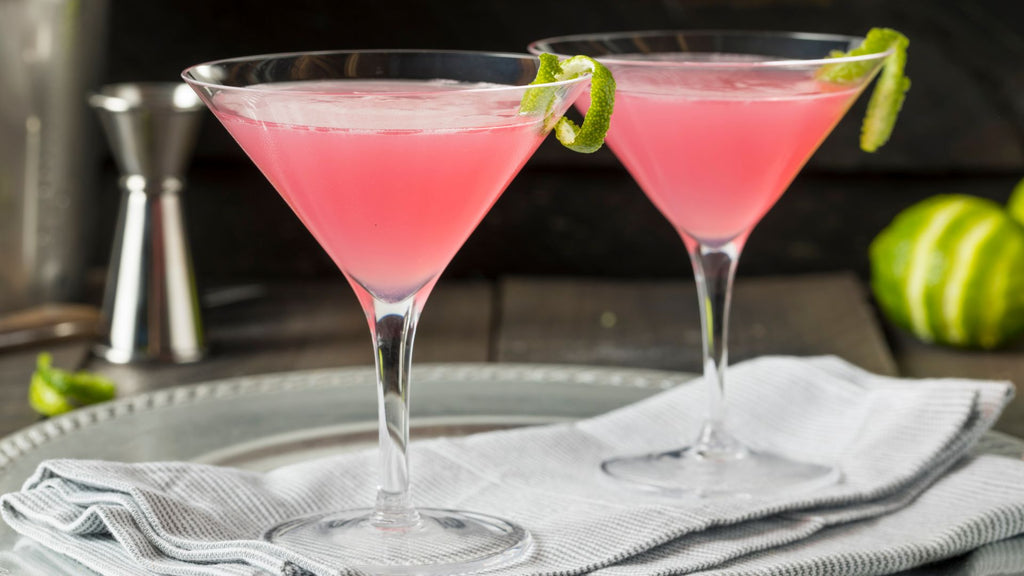
This flavorless spirit is a must-have for anyone who enjoys clean, refreshing cocktails like the Moscow Mule or a perfectly balanced Cosmopolitan (source: https://www.bbcgoodfood.com/recipes/cosmopolitan). Tito's Handmade Vodka is a popular choice for its smoothness and affordability.
Traditional Vodka Options to Consider
When selecting vodka, especially if you're aiming to please someone who isn't fond of the strong taste of alcohol, traditional and popular options are a great starting point. Here are some time-tested vodkas you might want to consider:
- Classic and Smooth: Typically known for its clean and neutral profile, vodka is a versatile choice ideal for various cocktails and mixers.
- Gifting Considerations: Vodka is often gifted due to its wide appeal and easy drinkability.
Recommended Traditional Vodka Choices:
-
Russian Standard Vodka:
- Why It's Special: Represents the authentic Russian vodka experience with its rich heritage and meticulous distillation process.
- Stolichnaya Vodka:
- Why It's Special: Well-regarded for its smoothness and balanced flavor, this vodka is a favorite in many classic cocktails.
- Absolut Vodka:
- Why It's Special: Known worldwide for its purity and consistent high quality, making it a staple in bars around the globe.
- Smirnoff Vodka:
- Why It's Special: Highly accessible and versatile, Smirnoff is appreciated for its clean taste and mixability.
Each of these traditional vodkas offers a unique characteristic, but all share a commitment to quality that ensures they can be enjoyed straight or in a wide range of mixed drinks.
A Versatile Gin or Two

Gin's botanical notes make it perfect for a variety of drinks, from Martinis and the classic Gin & Tonic to the herbal Negroni. Beefeater London Dry Gin is a reliable and affordable option, while Hendrick's Gin offers a more floral and unique flavor profile.
Alternatives to Premium Gin
Gin is a standout ingredient in many classic cocktails, making it a must-have for any home bar. If you're looking for options beyond premium brands, there are plenty of excellent alternatives that won't compromise on taste or quality.
London Dry Gins
London dry gin is known for its juniper-forward flavor balanced by a robust blend of botanicals. It's perfect for a gin and tonic or a refreshing Tom Collins. Here are a couple of excellent choices:
- Tanqueray: Renowned for its crisp and clean profile, making it versatile for various cocktails.
- Beefeater: Offers a bold flavor with a balanced mix of botanicals, ideal for both mixing and sipping neat.
Gin Styles Beyond London Dry
There are other styles of gin that can add a unique twist to your cocktails. Consider these options:
- Old Tom Gin: Slightly sweeter than London dry, making it a great choice for classic recipes like the Martinez.
- Plymouth Gin: Known for its earthy flavor profile with a touch of sweetness, it's a great way to mix up your gin routine.
Affordable Yet Quality Options
For those looking to keep an eye on their budget without skimping on quality, consider gins that offer great value:
- New Amsterdam: Offers a smooth, citrus-forward flavor that's surprisingly good for its price.
- Bombay Sapphire: While it hovers around the higher end of the budget gin spectrum, its balanced and botanical-forward profile is worth the extra penny.
Conclusion
These alternatives to premium gin provide a range of flavors and styles to suit any cocktail preference. Whether you're a fan of the traditional London dry or looking to explore other types of gin, there's a world of choices that can elevate your at-home cocktail game without breaking the bank.
Tequilas for Margaritas
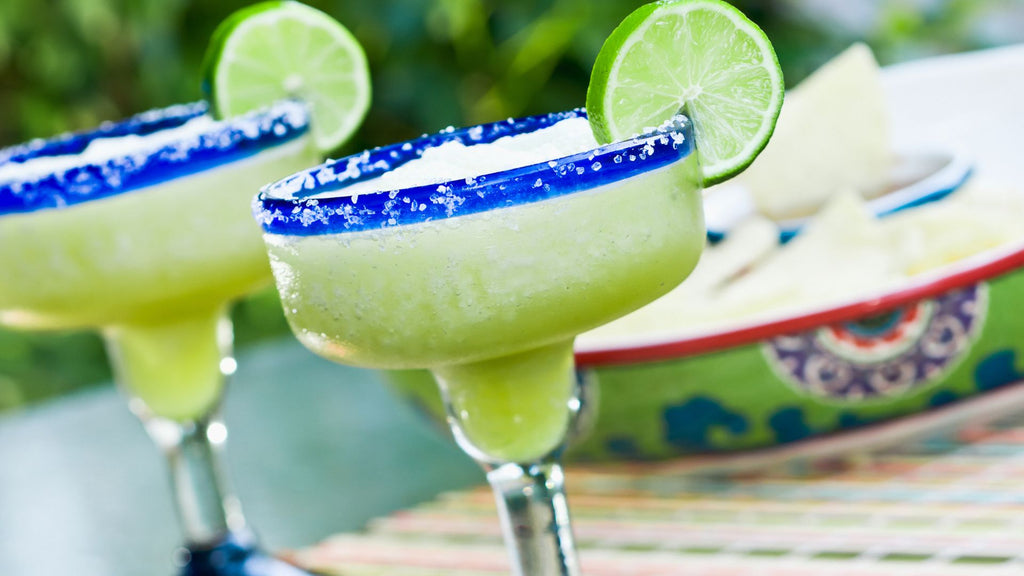
No home bar is complete without tequila, the key ingredient in the ever-popular Margarita. El Jimador Blanco is a great choice for beginners, while Don Julio Reposado offers a smoother, more complex experience.
What Should One Look for When Choosing a Tequila or Mezcal?
Look for 100% Agave
When selecting tequila or mezcal, prioritize quality by ensuring the bottle states "100% agave." This designation guarantees a pure, undiluted product made entirely from agave plants, providing a richer and more authentic flavor compared to mixed or "mixto" spirits.
Avoid Going Cheap
Budget options often cut corners, leading to inferior taste and a harsher drinking experience. Investing a bit more in a reputable brand typically results in a smoother, more enjoyable beverage that highlights the nuanced flavors of agave.
Consider the Type
-
Tequila: Typically made from blue agave, it comes in several varieties:
- Blanco (Silver): Unaged or minimally aged, offering a crisp, pure agave taste.
- Reposado: Aged between two months and a year, providing a balance of agave flavor with hints of oak.
- Añejo: Aged for one to three years, delivering a rich, smooth profile with pronounced oak influences.
-
Mezcal: While tequila is a type of mezcal, not all mezcal is tequila. Mezcal can be made from various agave species and often has a distinctive smoky flavor. Look for:
- Espadín: The most common agave variety used in mezcal, known for its versatile flavor profile.
- Tobalá: Often referred to as the king of mezcals, tobalá agave yields complex, earthy, and floral notes.
Check the Origin
Both tequila and mezcal are typically produced in specific regions of Mexico. For tequila, look for origins in states like Jalisco. For mezcal, Oaxaca is a renowned production area. Authentic regional production often correlates with higher quality.
Research the Distillery
Not all distilleries operate with the same methods or standards. Investigate the reputation and production practices of the distillery. Premium distilleries focus on traditional methods, such as slow cooking agave in brick ovens or clay pits, which can enhance the flavors and complexity.
By understanding these key elements, you’ll be well-equipped to choose a high-quality tequila or mezcal, ensuring a delightful tasting experience.
Two Good Rums Are Better Than One
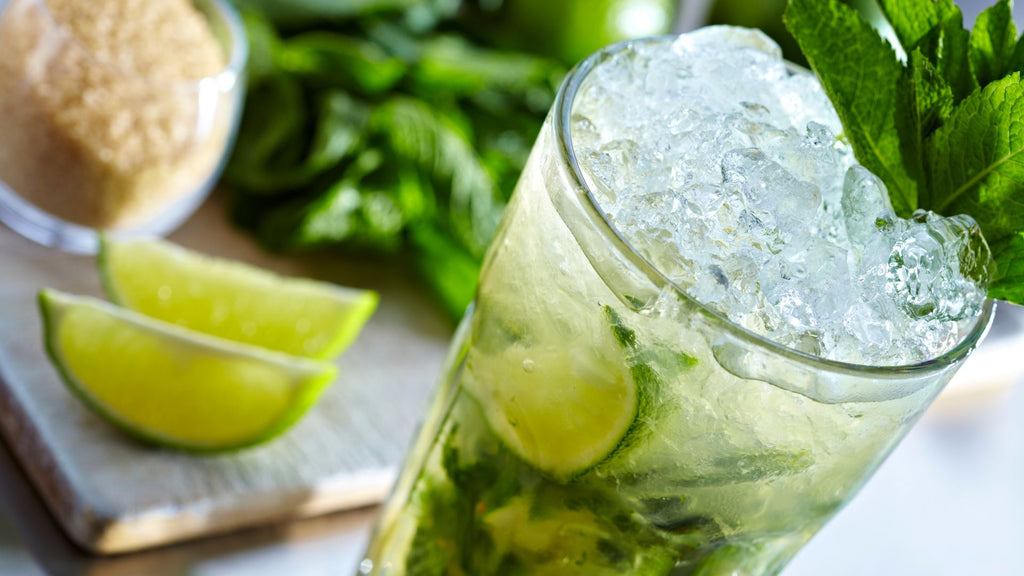
Rum adds depth and character to cocktails. Bacardi Carta Blanca is a classic white rum perfect for refreshing Mojitos, while Plantation Dark Rum brings depth and spice to a Dark and Stormy or a decadent rum punch.
Affordable Alternatives to Premium Light Rum
When searching for budget-friendly alternatives to premium light rum, it's crucial to consider options that still offer excellent taste and compatibility in cocktails. Here are some suggestions:
-
Flavor Profile: Light rum generally has a milder flavor compared to dark rum, making it ideal for mixed drinks such as daiquiris and mojitos.
-
Recommended Options:
- Bacardi Superior: Known for its clean and smooth taste, Bacardi Superior is a versatile choice that works well in various cocktails.
- Cruzan Light Rum: With its subtle vanilla and subtle, crisp flavors, Cruzan Light Rum is an excellent option for those on a budget.
-
Tips for Selection:
- Check the ABV (Alcohol By Volume): Typically, light rums have an ABV of around 40%. Ensure the bottle you choose meets this standard.
- Read Reviews: Look for user reviews and ratings to gauge the quality and taste of the rum before purchasing.
Using these tips and exploring the recommended options can help you enjoy high-quality light rum without breaking the bank.
When it comes to crafting sweet tiki drinks, choosing the right dark rum is crucial. The ideal dark rum should have a robust flavor that stands out amidst the bold and fruity notes typical of tiki cocktails.
Recommended Dark Rum
For a dark rum that truly shines in tiki recipes, opt for one with a rich, deep flavor profile. This will ensure your drink doesn't get lost among the other ingredients.
- Bold Choice: Look for a Jamaican pot still black rum. Its intense and complex flavors, with notes of molasses and tropical fruit, complement the sweetness of tiki recipes perfectly.
- Milder Alternative: If you prefer a slightly less assertive dark rum, a high-quality aged rum from a well-known estate can be a great choice. These rums offer a balanced blend of spice and sweetness that's more subtle yet still richly flavored.
Both options provide a strong foundation for creating delicious and memorable tiki drinks.
Less Assertive Alternatives to Premium Dark Rum
If you're seeking a substitute for premium dark rum that offers a more subdued flavor profile, consider these options. These alternatives blend well in cocktails without overpowering the other ingredients, making them perfect for those who prefer a more balanced taste.
Milder Dark Rum Options
-
Appleton Estate Signature Blend
- Delivers a rich, smooth experience without overwhelming the palate.
- Ideal for tiki drinks and classic rum-based cocktails.
-
Mount Gay Eclipse
- Offers a harmonious blend of vanilla, banana, and baked spices.
- Its balanced complexity makes it versatile for various mixed drinks.
-
Diplomatico Mantuano
- Features a nuanced mix of dried fruits, wood, and vanilla notes.
- Suitable for those who enjoy a slightly sweeter, more intricate flavor.
These options maintain the essence of dark rum while being more approachable, ensuring that your cocktails remain delightful yet refined.
Choose Your Whiskey
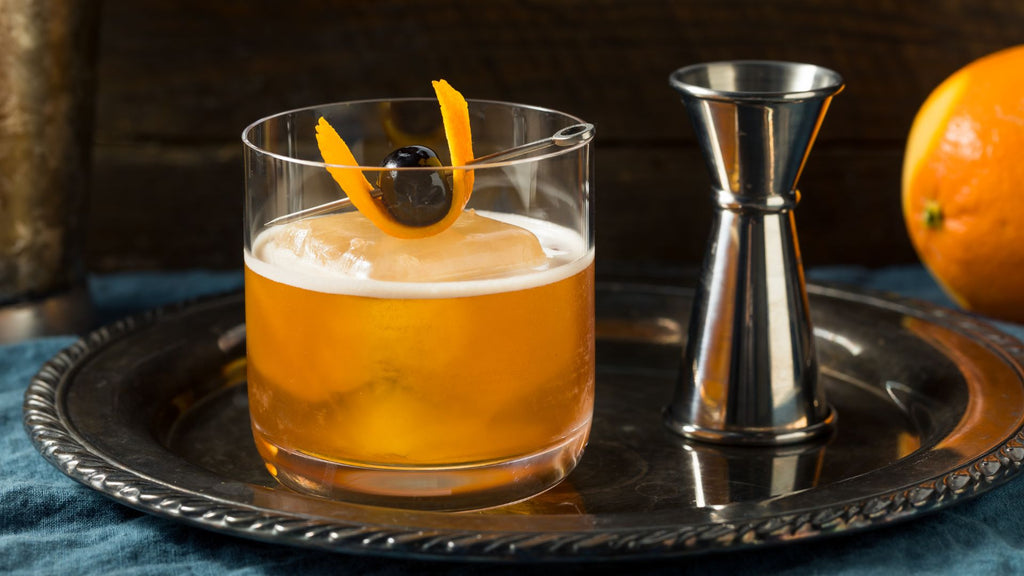
Whiskey is a versatile spirit, enjoyed neat or in cocktails like the Old Fashioned and the Mint Julep. Maker's Mark is a wheated bourbon known for its smooth taste, while Old Overholt Rye Whiskey provides a spicier kick.
Affordable Bourbon Alternatives
Finding a quality bourbon that doesn't break the bank is entirely possible. Let's explore some great budget-friendly options that still deliver rich flavor.
- Citrus and Bitters Companions: Affordable bourbons can also masterfully complement citrus or bitters. Here's a closer look:
- Rich in Character: If you're looking for a bourbon that brings depth without the steep price tag, consider options that retain robust flavor but are more wallet-friendly.
- Smooth Finish: Many less expensive bourbons still offer a smooth, satisfying finish, making them perfect for cocktails like an Old Fashioned.
Recommended Affordable Bourbons
-
Evan Williams Black Label
- Offers a balanced profile that holds up well in mixed drinks or on the rocks.
-
Four Roses Bourbon
- Renowned for its slight sweetness and spicy notes, this is a fantastic choice for bourbon lovers on a budget.
-
Wild Turkey 81
- Delivers a bold yet approachable flavor, ideal for sipping or mixing in your favorite cocktails.
Boost Your Bourbon Experience
Tips for Choosing Budget Bourbons
- Look for Awards and Reviews: Many affordable options receive accolades and high ratings from experts and enthusiasts.
- Experiment with Cocktails: Lower-cost bourbons are perfect for trying out new recipes without worrying about wasting expensive liquor.
- Compare with Premiums: Blind taste tests can be fun and often reveal surprising similarities between budget-friendly and premium bourbons.
By exploring these alternatives, you can enjoy the rich, satisfying experience of bourbon without overspending. Cheers to finding quality flavors at a fraction of the cost!
Exploring Rye Whiskey Options for Your Bar
Rye whiskey serves as a versatile base for many cocktails, thanks to its robust flavor that marries well with citrus, sugars, and bitters. If you’re looking to explore alternative rye whiskey options for your bar, here are some solid choices:
High-Proof Rye Whiskey
- Bulleit Rye: Known for its strong, spiced profile, Bulleit Rye stands out in any cocktail, whether you’re crafting a classic Manhattan or an adventurous new mix.
- Sazerac Rye: A favorite among mixologists, Sazerac Rye offers a rich, smooth taste that pairs well with a variety of ingredients.
Lower-Proof Rye Whiskey
- Old Forester Rye: This option delivers a balanced flavor with less intensity, making it perfect for those who prefer a gentler kick in their cocktails.
- Jim Beam Rye: An accessible option, Jim Beam Rye provides a lighter, more approachable rye experience without sacrificing quality.
Choosing the Right Rye for Your Needs
When selecting a rye whiskey, consider whether you need a high-proof option for bolder cocktails or a lower-proof alternative for a smoother, more nuanced flavor. High-proof ryes are excellent for drinks that require a strong backbone to maintain their integrity, while lower-proof variants are ideal for those seeking subtlety and balance.
Quick Tips
- For Robust Cocktails: Opt for high-proof rye if you enjoy making drinks that pack a punch, such as Old Fashioneds and Sazeracs.
- For Balanced Drinks: Choose a lower-proof rye for a more rounded, harmonious cocktail experience, suitable for sipping neat as well.
Elevate your bar experience by experimenting with these rye whiskey options and discovering the unique flavors they bring to your favorite cocktails.
Scotch in Cocktails: How It Stands Apart
When it comes to mixing scotch into cocktails, it brings a unique character that's quite distinct from other whiskeys. Here’s how scotch differentiates itself:
-
Flavor Profile: Scotch typically has a smoky, peaty flavor because of the malted barley dried over peat fires. This gives cocktails made with scotch a noteworthy depth and complexity. In contrast, American bourbons might lend a sweeter, vanilla-forward taste, and Irish whiskeys often introduce lighter, smoother notes.
-
Aging Process: Scotch is aged for a minimum of three years, often in oak barrels that previously held bourbon or sherry. This aging process imparts additional flavors like caramel, oak, and sometimes spicy or fruity undertones, making every scotch cocktail robust and layered.
-
Regional Variations: Different regions in Scotland produce distinct types of scotch. For instance, Islay scotches are known for their intense peatiness, while Highland scotches might offer a more floral and fruity aroma. This regional diversity means scotch cocktails can vary widely, providing a tailored experience not often seen with other whiskeys.
-
Classic Cocktails: Scotch is the star ingredient in several iconic cocktails. The "Rob Roy," made with scotch, sweet vermouth, and bitters, is essentially a Scottish twist on the classic Manhattan. Its complex flavors bring a sophisticated edge that sets it apart from similar cocktails made with other types of whiskey.
Incorporating scotch into your cocktail repertoire can elevate your drink game, offering a richness and variety that's truly unique.
A Basic Brandy
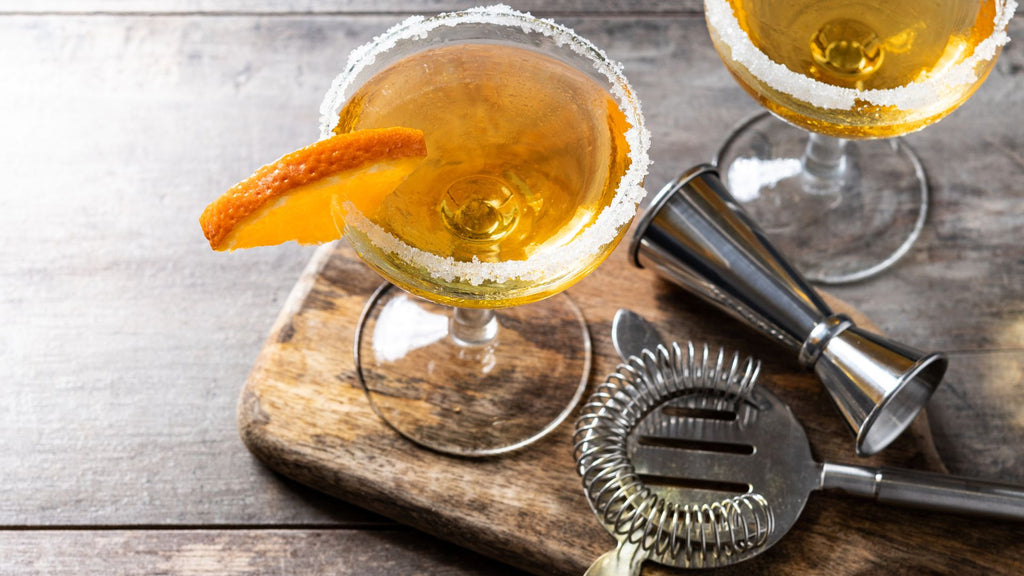
Brandy adds sophistication to cocktails like the Sidecar. Hennessy VS is a good starting point, offering a well-rounded and affordable brandy experience.
Affordable and Lighter Alternatives to Premium Brandy
When you're looking for a lighter and more budget-friendly option to premium brandy, there are several choices available that don't sacrifice quality.
Recommended Alternatives:
-
Korbel Brandy: An excellent option for those who enjoy a refined Wisconsin old fashioned. It offers a smooth flavor without the hefty price tag.
-
E&J Brandy: Known for its approachable taste and affordability. Ideal for mixing in cocktails or enjoying on its own.
-
Paul Masson Grande Amber Brandy: This brandy provides a well-balanced flavor at a lower cost, making it a popular go-to for both casual sipping and cocktail mixing.
Tips for Choosing a Brandy:
-
Consider the Flavor Profile: If you prefer a lighter flavor, look for brandies that are labeled as “VS” (Very Special), which are typically aged for a shorter period, resulting in a milder taste.
-
Check the Price Point: Quality brandy doesn’t have to be expensive. Many brands offer excellent options at a reasonable price, perfect for everyday use or entertaining without breaking the bank.
-
Mixing vs. Sipping: Determine if you will be primarily sipping the brandy neat or using it in cocktails. Some lighter brandies might be fantastic in drinks but lack the complexity needed for sipping straight.
When choosing a lighter and cheaper alternative to premium brandy, these options provide both quality and value, ensuring you can enjoy your drink without compromising your budget.
Recommended Dry Vermouth and Storage Tips
When it comes to dry vermouth, selecting the right type and storing it properly are key to enhancing your drinks.
Recommended Dry Vermouth
For a versatile, classic dry vermouth, Dolin Vermouth de Chambéry Dry is highly recommended. It combines a delicate balance of herbs and floral notes, making it ideal for a wide array of cocktails.
If you're feeling adventurous and want to explore alternatives, consider trying either Lillet Blanc or Cocchi Americano. Both offer unique flavor profiles that can add an interesting twist to traditional recipes.
Storage Tips
Proper storage is essential to maintain the quality and freshness of dry vermouth:
- Refrigerate After Opening: Once you open a bottle of dry vermouth, always keep it refrigerated. This helps to preserve its flavor and prevent it from oxidizing.
- Opt for Smaller Bottles: Purchasing smaller bottles is a smart choice if you don't use vermouth frequently. This way, you can enjoy it at its freshest without worrying about it going bad.
By following these recommendations, you can ensure your dry vermouth remains delicious and ready to elevate your cocktails.
What Are Some Adventurous Alternatives to Traditional Dry Vermouth?
If you're looking to broaden your horizons beyond the typical dry vermouth, there are several exciting options that can add a unique twist to your cocktails. Here are a few suggestions:
Lillet Blanc
This French aperitif wine offers a slightly sweeter profile compared to traditional dry vermouth. It brings forward citrus and floral notes that can elevate your drinks with a refreshing zing.
Cocchi Americano
An Italian aperitif, Cocchi Americano strikes a balance between bitter and sweet. It boasts hints of honey, citrus, and spice, making it a versatile substitute for dry vermouth in various cocktail recipes.
Noilly Prat Extra Dry
For those who still lean towards a French style but want something a bit different, Noilly Prat Extra Dry offers a more herbaceous and slightly briny flavor. This vermouth is perfect for martinis or any recipe that calls for dry vermouth.
Tips for Storage and Usage
To ensure the best flavor from your vermouth alternatives:
- Refrigerate After Opening: Any open bottle of vermouth should be kept in the fridge to maintain its quality.
- Opt for Smaller Bottles: Smaller bottles can help you use the product faster, protecting it from oxidation and preserving its intended flavor.
Experimenting with these adventurous alternatives can bring new dimensions to your favorite cocktails, enhancing your drinking experience with unique flavors and aromas.
Recommended Sweet Vermouth and Storage Tips
When it comes to selecting a sweet vermouth, opting for an Italian style is a popular choice for its rich flavors and versatility in cocktails. Always remember to keep your sweet vermouth refrigerated to maintain its quality and extend its shelf life.
Top Recommendations:
- Traditional Choice: You can't go wrong with a classic Italian vermouth which offers a balanced sweetness and rich herbal notes.
- Adventurous Substitute: For those looking to explore beyond vermouth, an amontillado sherry from acclaimed producers like Alvear or Lustau provides a unique flavor profile that's both complex and satisfying.
Regardless of your choice, proper storage is key. Always refrigerate after opening and consider purchasing smaller bottles to ensure the vermouth remains fresh with each use.
Exploring Adventurous Alternatives to Traditional Sweet Vermouth
If you're seeking to expand your horizons beyond traditional sweet vermouth, consider some intriguing alternatives. These selections not only add a unique twist to your cocktails but also allow you to experiment with different flavor profiles.
Amontillado Sherry
- Distinct Flavor: Amontillado sherry offers a rich, nutty character with complex undertones of dried fruit and caramel. It's an excellent option for those who appreciate deeper, more nuanced flavors.
- Usage: Perfect for sipping neat or incorporating into classic cocktails like the Manhattan for a bold twist.
Quinquina
- Elegant Bitterness: Quinquina is a type of aromatized wine infused with bitter bark from cinchona trees. It blends well with both gin and whiskey, adding a sophisticated bitterness that complements the sweetness typically found in cocktails.
- Versatility: Use it in place of sweet vermouth in drinks like the Negroni for an unexpected kick.
Rancio Sec
- Unique Profile: Rancio Sec, a fortified wine from France, is known for its oxidized, rustic flavor with hints of nuts and dried fruits. It introduces a warmer, earthier element to your cocktails.
- Cocktail Creativity: Experiment with Rancio Sec in place of sweet vermouth to craft a cocktail that is both distinguished and daring.
By trying these adventurous alternatives, you'll not only diversify your home bar but also discover new dimensions of flavors in your favorite cocktails.
Essential Liqueurs List
Liqueurs add unique flavor profiles to cocktails. Here's a starting point
The Basic Liqueurs: Amaretto adds a touch of almond, Cointreau (or another orange liqueur) brings citrus zest, and dry vermouth offers a touch of herbal complexity.
The Secondary Liqueurs: For more adventurous palates, consider options like Campari (bitter and citrusy), Aperol slightly sweeter than Campari), or Irish Cream liqueur for delightful after-dinner drinks.
When it comes to orange liqueurs, having the right option can make all the difference depending on your recipe. Here are some excellent choices:
- My choice: Pierre Ferrand Dry Curacao– Perfect for those who enjoy a balanced, traditional flavor.
- Drier alternative: Luxardo Triplum Triple Sec– Ideal for cocktails that require a less sweet, more zesty profile.
- Sweeter alternative: Marie Brizard Orange Curacao– Great for recipes needing a sweeter, more pronounced orange taste.
By selecting the right liqueur, whether it's for a classic cocktail or an experimental mix, you ensure your drink reaches its full flavor potential.
Recommended Apéritif/Digestif for a Home Bar
When setting up a home bar, incorporating a quality apéritif and digestif can elevate your cocktail game. These spirits can be enjoyed neat or used to add complexity to your drinks.
Apéritif: An apéritif is traditionally served before a meal to stimulate the appetite. It often has a bitter or dry profile, making it an excellent way to start the evening.
- Campari: Known for its bold, bitter flavor with notes of citrus and herbs, it's a classic choice for many cocktails, such as the Negroni.
- Aperol: A sweeter, slightly less bitter option that also brings vibrant orange and rhubarb notes. It's perfect for lighter cocktails like the Aperol Spritz.
Digestif: A digestif is enjoyed after a meal to aid digestion. These tend to be richer and more robust in flavor.
- Fernet: A type of amaro with a strong herbal profile, Fernet is loved for its intense and complex taste.
- Amaro: Amaro encompasses a range of Italian herbal liqueurs with a bittersweet flavor, ideal for sipping neat or mixing into after-dinner drinks.
By incorporating these versatile spirits into your home bar, you can mix up a variety of cocktails or enjoy them on their own, enhancing both your pre-dinner and post-dinner experiences.
What are Apéritifs and Digestifs, and How Are They Used in Cocktails?
Understanding Apéritifs and Digestifs
Apéritifs:
- Traditionally enjoyed before a meal.
- Often bittersweet, stimulating the appetite.
- Common examples include vermouth, Campari, and aperol.
Digestifs:
- Typically served after a meal.
- Known for their soothing and digestive properties.
- Brandy, amaro, and fortified wines like port are popular choices.
How to Use Them in Cocktails
Using Apéritifs:
- Neat: Simply pour over ice or enjoy straight up to savor their complex flavors.
-
Cocktail Enhancer: Add depth and bitterness to cocktails:
- Negroni: Gin, sweet vermouth, and Campari.
- Aperol Spritz: Aperol, prosecco, and soda water.
Using Digestifs:
- Neat: Serve straight after a meal for a calming finish.
-
Cocktail Ingredient: Provide a rich, complex note to cocktails:
- Brandy Alexander: Brandy, crème de cacao, and cream.
- Amaro Sour: Amaro, lemon juice, simple syrup, and egg white.
By incorporating these versatile beverages, you can enhance the flavor profile and create a well-rounded dining experience.
What are Some Sweeter Alternatives to Traditional Apéritifs/Digestifs?
When looking for alternatives to the classic, often bitter apéritifs and digestifs, sweeter options can provide a welcome change of pace. These alternatives can be enjoyed neat or as integral components in a variety of cocktails. Here are a few deliciously sweet choices:
1. Aperol
- Flavor Profile: Light and sweet with vibrant citrus notes.
- Popular Cocktails: Aperol Spritz, mixed with prosecco and a splash of soda water.
2. Lillet Blanc
- Flavor Profile: A French aperitif wine with floral, honey, and citrus flavors.
- Popular Cocktails: Vesper Martini, traditionally combining gin and vodka.
3. Cocchi Americano
- Flavor Profile: A fortified wine with sweet, spicy, and citrus notes.
- Popular Cocktails: Works well in Negroni variations or simply served over ice with a twist of lemon.
4. St-Germain
- Flavor Profile: Sweet elderflower with hints of pear and lychee.
- Popular Cocktails: The St-Germain Spritz, which includes sparkling wine and club soda.
5. Cardamaro
- Flavor Profile: A blend of cardoon and blessed thistle, giving it a sweet, herbal taste.
- Popular Cocktails: Often enjoyed neat or mixed with tonic water.
Making the Switch
Switching to sweeter apéritifs and digestifs can transform your pre-meal and post-meal experiences. These options often bring a more balanced and approachable flavor profile, enhancing various dishes or mixed drinks.
Whether you enjoy them on their own or as part of a crafted cocktail, these sweeter alternatives offer a delightful twist on the traditional beverage experience.
Essential Nonalcoholic Mixers

These ingredients are the backbone of any cocktail.
Ice (Yes, Ice!): Fresh, high-quality ice is crucial for perfectly chilled and well-diluted drinks.
Essential Juices: Stock up on fresh lemon, lime, orange, and grapefruit juices for a variety of classic cocktails.
More Essential Mixers: Simple syrup (sugar dissolved in water) adds sweetness, while grenadine provides a touch of pomegranate flair. Don't forget bitters, like Angostura aromatic bitters, which add complexity and depth to cocktails.
Essential Sodas: Club soda adds fizz, tonic water has a distinctive flavor profile, and ginger ale offers a spicy twist.
Essential Cocktail Garnishes
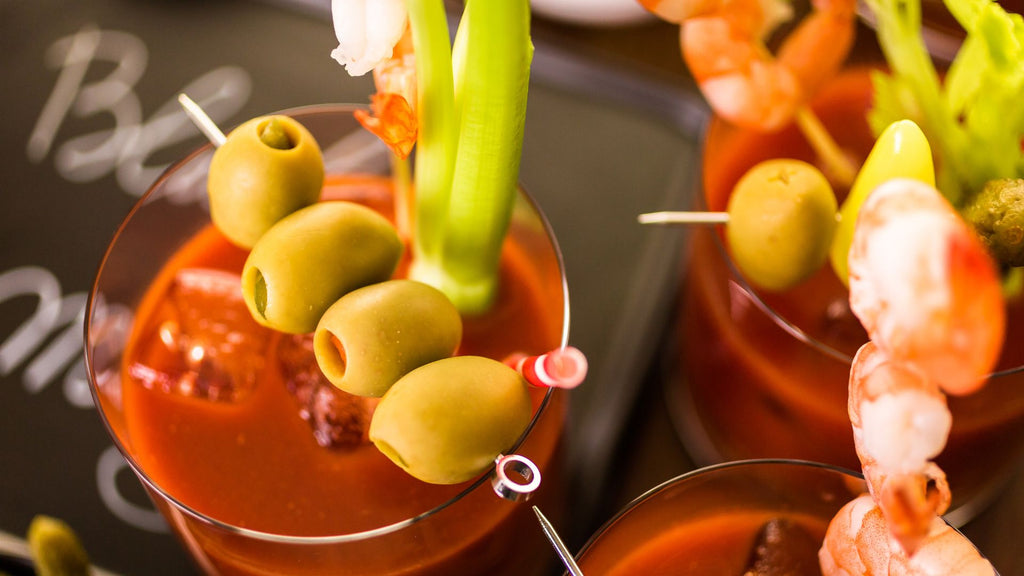
These finishing touches elevate the visual appeal and taste of your cocktails.
The Essentials: Citrus peels, fresh herbs like mint and basil, and maraschino cherries are versatile garnishes.
Nice to Have Around: Consider olives, cocktail onions, and edible flowers for an extra touch of flair.
Must-Have Bitters for Your Home Bar
What Role Do Bitters Play in Cocktails?
Bitters are often referred to as the "salt and pepper" of the cocktail world, and for good reason. They add depth, complexity, and balance to your drinks, transforming a simple mix into a sophisticated concoction. But what exactly do bitters do, and why are they essential?
Enhancing Flavors
Bitters work much like spices in cooking. They enhance other flavors in the cocktail, bringing out the nuances of the ingredients. A few drops can elevate a drink from flat to flavorful, adding a layer of taste that would otherwise be missing.
Balancing Sweetness
Cocktails often involve sweeteners like syrups or liqueurs. Bitters provide a counterbalance to this sweetness, creating a more rounded and harmonious flavor profile. This balance is crucial for a well-crafted cocktail that isn't overly sweet or cloying.
Adding Complexity
Different types of bitters can introduce a variety of flavor notes. For example:
- Aromatic Bitters: These are your all-around bitters, offering a rich combination of spices and herbs.
- Orange Bitters: These bring in a zesty, citrusy note, perfect for light and refreshing drinks.
- Specialty Bitters: Varieties like Peychaud's bitters add unique, regional flavors, enhancing drinks like the Sazerac.
How to Use Bitters
Using bitters is simple but requires a bit of precision:
- Measure cautiously. Usually, a few dashes are all you need.
- Mix well. Bitters should be evenly distributed throughout the cocktail to avoid an overpowering hit in one sip.
- Experiment. Different cocktails benefit from different types of bitters, so don't shy away from trying new combinations.
Versatility
Bitters aren't restricted to just one type of cocktail. Whether you're preparing a classic Old Fashioned, a contemporary cocktail, or even experimenting with your own creations, bitters are a flexible ingredient. They can also be used in non-alcoholic drinks like sodas and teas, adding a touch of sophistication.
In summary, bitters are a fundamental component in the art of mixology. They enhance, balance, and add complexity to cocktails, making them indispensable for anyone looking to craft a well-rounded and flavorful drink. So, next time you're mixing a cocktail, don't forget to reach for the bitters—they might just be the ingredient that takes your creation to the next level.
Here are some top recommendations:
- Classic Bitters: Every home bar should include a versatile aromatic bitters. It's perfect for a wide range of cocktails, from old-fashioneds to Manhattans.
- Citrus Bitters: For a zesty twist, consider adding orange bitters. They pair beautifully with gin, vodka, and rum-based drinks.
- Regional Specialties: Experiment with different styles by including bitters known for their unique regional flavors, such as those from New Orleans, which add a distinct licorice-like note.
These essential bitters will elevate your cocktail-making game and ensure you’re prepared for a variety of recipes.
Exploring Alternative Types of Bitters for Cocktails
When crafting the perfect cocktail, bitters play a crucial role, much like salt and pepper in gourmet cooking. Here are a few excellent alternatives to consider:
Classic Aromatic Bitters
- Aromatic bitters are versatile and can add complexity to a range of cocktails. These usually blend spices, herbs, and roots to enhance the drink's depth.
Citrus Bitters
- Orange bitters provide a zesty punch that pairs wonderfully with gin and whiskey-based cocktails.
- Lemon bitters are another citrus option that adds a bright, tangy note to mixed drinks.
Regional Varieties
- New Orleans bitters are known for their unique blend of herbs and spices, offering a distinctive flavor profile that's a staple in many Southern-style cocktails.
- Jamaican bitters bring a tropical flair with notes of allspice and cinnamon, perfect for rum-based beverages.
Herbal and Spiced Bitters
- Herbal bitters often include ingredients like mint, basil, or rosemary, making them great for summer refreshments.
- Spiced bitters integrate flavors such as cinnamon, clove, and cardamom, ideal for adding warmth to holiday-themed drinks.
Floral and Fruity Bitters
- Cherry bitters infuse a sweet, fruity essence, enhancing bourbon and rye whiskies.
- Lavender bitters offer floral notes that complement gin and vodka cocktails beautifully.
Considering the variety available, experimenting with different types of bitters can elevate your cocktail game to new heights. Don't hesitate to mix and match to discover unique combinations that suit your palate.
What are Absinthe and Pastis, and How are They Used in Cocktails?
If you're a cocktail enthusiast, you've probably come across absinthe and pastis. Let's dive into what these spirits are and how they can elevate your cocktail game.
Absinthe: The Green Fairy
Absinthe is a highly alcoholic spirit derived from botanicals, primarily wormwood, anise, and fennel. Known for its green hue and strong, herbaceous flavor, absinthe boasts a storied history filled with both allure and controversy.
How to Use Absinthe in Cocktails
- Traditional Serve: In its classic form, absinthe is enjoyed by slowly dripping ice-cold water over a sugar cube placed on a slotted spoon, allowing the sweetened water to mix with the absinthe.
- Cocktail Enhancement: Absinthe can add complexity to several cocktails. It's famously used in the Sazerac, where just a rinse of absinthe in the glass provides an intense aromatic experience.
- Signature Drinks: Try cocktails like the Corpse Reviver No. 2, which combines absinthe with gin, Lillet Blanc, orange liqueur, and lemon juice for a balanced yet potent drink.
Pastis: The French Aperitif
Pastis is an anise-flavored spirit, cherished particularly in the south of France. Unlike absinthe, pastis does not contain wormwood, making its profile slightly milder and sweeter. It's typically consumed as an aperitif.
How to Use Pastis in Cocktails
- Refreshing Serve: A simple and refreshing way to enjoy pastis is by diluting it with cold water. This turns the clear spirit a cloudy, milky color, universally known as the "louche."
- Cocktail Magic: Incorporate pastis into cocktails for an anise kick. For example, the classic drink called the "Perroquet" mixes pastis with water, mint syrup, and sometimes a splash of grenadine.
- Creative Mixes: Experiment with pastis in new recipes. It pairs surprisingly well with citrus juices and can add a unique flair to your summer cocktail repertoire.
Key Differences
While both absinthe and pastis share a strong anise flavor, their uses in cocktails can lead to very different results. Absinthe's robust, complex nature makes it a staple in traditional and avant-garde cocktails alike, whereas pastis offers a softer, more approachable alternative ideal for casual sipping and simple mixes.
Final Thoughts
Whether you're intrigued by the mystique of absinthe or the laid-back elegance of pastis, these spirits can bring a sophisticated, aromatic twist to your cocktails. Experiment with both to discover your preferences and elevate your bartending skills. Cheers!
Essential Absinthe and Pastis Choices for Your Home Bar
When it comes to stocking a home bar with an intriguing variety, absinthe and pastis offer unique, aromatic flavors that can elevate your cocktail game. Here are some recommended options to consider:
Absinthe Options
Absinthe, known for its rich herbal complexity and anise flavor, is a must-have for any home bar. Here are some top choices:
-
La Clandestine Absinthe:
- Renowned for its balanced profile and smooth finish, making it great for both novice and seasoned absinthe drinkers.
-
Kübler Absinthe:
- Offers a crisp, fresh taste with notes of wormwood, perfect for classic cocktails like the Sazerac or simply with water and a sugar cube.
-
Vieux Pontarlier Absinthe:
- With its deep herbal notes and slightly bitter edge, it's an excellent choice for those who appreciate a more robust flavor.
Pastis Alternatives
Pastis, a French anise-flavored spirit, is another excellent addition to your bar:
-
Ricard Pastis:
- This classic pastis delivers a perfect blend of star anise and licorice, ideal for sipping on a warm summer day or as an aperitif.
-
Pernod Anise:
- Pernod offers a smoother, slightly sweeter option with a complex anise essence, making it versatile for various cocktail recipes.
-
Henri Bardouin Pastis:
- Known for its blend of over 65 botanicals, this pastis provides a more intricate flavor profile, enhancing both mixed drinks and traditional serves.
Quick Serving Tips
- For Absinthe: Serve traditionally with chilled water, pouring slowly over a sugar cube resting on an absinthe spoon until the drink turns a milky opalescent color.
- For Pastis: Simply mix with cold water, typically at a ratio of 1 part pastis to 5 parts water. Add ice if desired, but ensure the water is added first to fully release the flavors.
By stocking your bar with these hand-picked selections, you’re sure to impress guests with the distinctive and aromatic offerings of absinthe and pastis. Cheers to exploring the fascinating world of these anise-flavored spirits!
Remember, a well-stocked home bar is an investment that provides endless opportunities to entertain and impress. This guide is just the beginning! With a little practice and the help of resources like Barprints' Mixology Mastery: Online Bartending Course, you'll be crafting applause-worthy classic cocktails and creating your own signature drinks in no time. What classic cocktail are you most excited to try first?




